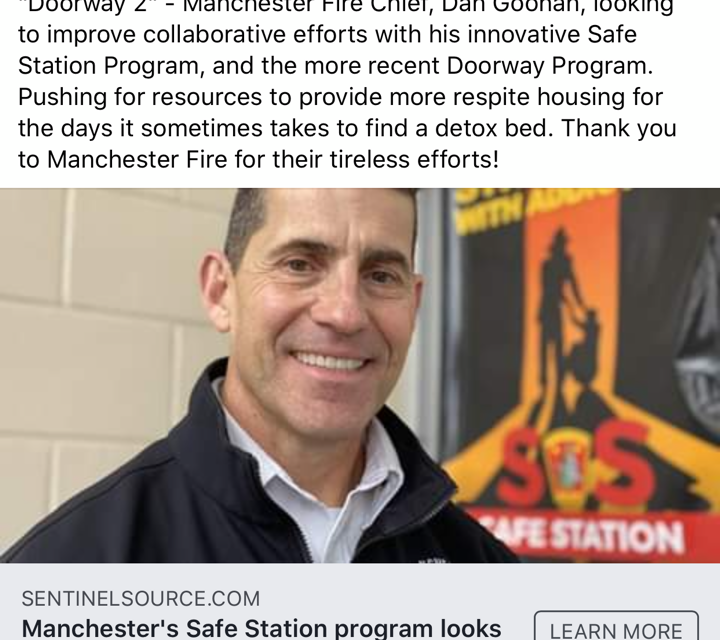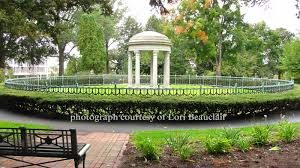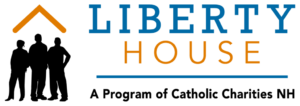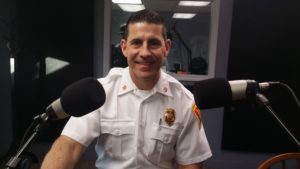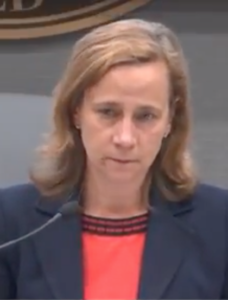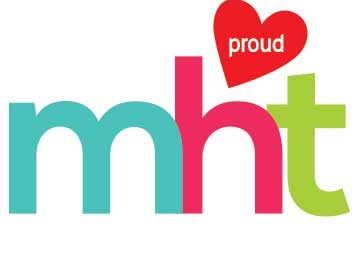Residents of a Ward 2 neighborhood, where so called “sober homes” have opened and operated illegally, presented a list of suspected sober living facilities around the city to the Manchester Board of Mayor and Aldermen at its March 3, 2020 meeting. Several of the addresses came from residents who read articles published by Girard at Large on the topic, including:
“Sober Homes” and Sleight of Hand — Updated
Sober homes of man convicted in cop killing identified
Kevin Paul: Not just a “sober home” resident
Addresses already raised by the neighbors with the city include: 273 Dubuque St., 70 Russell St. (which was denied a variance to operate on February 13, 2020), 296 Orange St., 859 Chestnut Street, 329 Lake Ave. and 151 Parkview St.
Since publishing these stories, Girard at Large has received information from neighbors and, in some instances, current or former residents of these facilities. Ward 2 residents involved in the efforts to force the city to enforce its zoning and life safety codes have also located several facilities to assist the city with its enforcement efforts since the city can’t seem to find them on its own.
In publishing the addresses, we note that these some of these suspected facilities may be operating in compliance with city zoning, life safety, building, housing and other codes. That said, Girard at Large will forward this list to the board with a request that they be investigated. Here is the list in alphabetical order:
- 241 Auburn St.
- 357 Central St.
- 37 Dyson St.
- 109 Goffstown Rd.
- 631 Hayward St.
- 70 Kelley St.
- 400 Kelley St.
- 40 Mammoth Rd.
- 374 Manchester St.
- 173 Merrimack St.
- 332 Merrimack St. (which Google Maps identifies as a Halfway House)
- 157 Milford St./133 Riddle St.
- 179 Pine St.
- 162 Reed St.
- 666 Rimmon St.
- 315 Spruce St.
- 319 Spruce St.
It is important to understand that “sober homes/living facilities” and “recovery housing/homes” fall into three basic business models: Boarding house, congregate living facility or halfway house. While the Manchester Zoning Ordinance does not define “sober” or “recovery” housing, it doesn’t need to because it does define the business models their proprietors use. Other codes enforced by the city also have definitions for these uses. All of the codes impose requirements on the properties which determine where they can locate and how they must operate. Sober facilities ARE allowed by the Manchester Zoning Ordinance if they are located in the zones that allow them, have the permissions they need and meet the codes that every other property has to meet.
The Zoning Ordinance cares about the use of the property, not the clientele served by the use. For example, Liberty House, the sober home that serves veterans in recovery, is moving to a facility at 221 Orange St. that currently houses retired priests. The property is in the C-1 zone, which permits congregate living facilities by right. Even if the neighborhood wanted to stop it, and it doesn’t, it couldn’t because the use is allowed. So, if a sober facility can, by right under the current zoning, move there, why does anyone, including various city officials, contend that “sober homes” aren’t allowed in Manchester?
Ward 2 residents and neighbors Gary Field and Richard Girard have repeatedly brought this to the attention of the city on multiple occasions, including at their meeting on February 18, 2020. Their comments, which were made at the beginning of the meeting, can be viewed here. It is not possible for the city to know where all these facilities are operating. However, as with most zoning and other code enforcement, the city does respond to complaints by investigating them. That has always been the case and is being mentioned to call into question the assertions made by Fire Chief Dan Goonan and Planning Director Leon LaFreniere that they can’t just “go into a property” and look around. The fact is, they can when they receive a complaint alleging code violations. So, why aren’t they?
This article has been forwarded to the Board of Mayor and Aldermen to provide the addresses and ask that these places be looked at to ensure these facilities are operating in compliance with all zoning, life safety, building, housing, health and other codes. If they’re not, then the city is obligated to take the enforcement actions required by the codes. Given that Chief Goonan has admitted that he’s not enforcing the codes because of the opioid crisis (see transcript of his comments to the Ward 2 neighborhood meeting) and, in doing so, admits he has the authority to do so, Mayor Joyce Craig and the Board of Aldermen legally must cause all those responsible for code enforcement in the city to do their job. Failure to do so could run afoul of New Hampshire’s Official Oppression statute. If they enforce the law, legitimate operators will continue to operate, those who want to be legitimate will do what is necessary and those who aren’t will be shut down. These outcomes are good for everyone, especially those in need of legitimate sober living.
~Publius

